#Yacimientos Petrolíferos Fiscales Bolivianos (YPFB)
Text
Mal mantenimiento de tanques y una red de corrupción
Desde el sindicato de Yacimientos Logística Santa Cruz, Efraín Ortega explicó el supuesto robo de 91.000 litros de gasolina desmentido por el mismo. El responsable del sindicato considera que esta merma se debe al mal estado del tanque 2914, que no contó con el mantenimiento necesario. Asimismo, el director de YPFB Logística, Armin Dorgathen, denunció la existencia de una red de corrupción…
View On WordPress
#Armin Dorgathen#Autoridad Nacional de Hidrocarburos (ANH)#Corrupción.#Efraín Ortega#Félix Cruz#mantenimiento de tanques#Merma de combustible#Yacimientos Logística Santa Cruz#Yacimientos Petrolíferos Fiscales Bolivianos (YPFB)
0 notes
Text
Bolivia wants better gas deal with Brazil
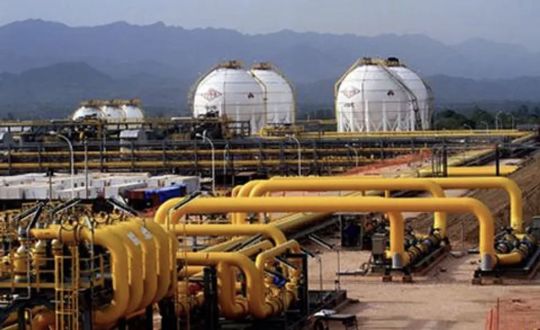
Bolivia's Minister of Hydrocarbons and Energy Franklin Molina said the agreement with Brazil for the sale of cooking gas signed during the arguably illegitimate administration of Janine Áñez was detrimental to his country and will now seek to reach a new, more favorable deal.
Molina made those remarks after Brazilian President Jair Bolsonaro decried Bolivia's decision to refunnel 30% of the gas originally bound for South America's largest country to Argentina, where President Alberto Fernández has a lot more in common with Bolivian leader Luis Arce Catacora and also to former President Evo Morales Ayma.
“Everything is orchestrated,” Bolsonaro complained, arguing that angered Brazilians who would have to pay higher gas bills would turn to “you know whom” (leftwing presidential candidate and former two-time head of state Luiz Inácio Lula Da Silva) and said his own country's state-run oil company Petrobras was behind the maneuver.
Molina said the price agreed in the addendum signed under Áñez was not favorable for Bolivia and was causing economic damage to the state-owned Yacimientos Petrolíferos Fiscales Bolivianos (YPFB).
"It is a duty to renegotiate the conditions of said addendum, because who signed it was a de facto government that did not care about the interests of the State (...) Bolivia is looking for a better price for its natural gas, better conditions and a better market,“ Molina said in a statement.
Continue reading.
#brazil#brazilian politics#politics#bolivia#bolivian politics#economy#oil industry#international politics#mod nise da silveira#image description in alt
1 note
·
View note
Text
Les réserves minérales de la Bolivie sont les ressources les plus précieuses
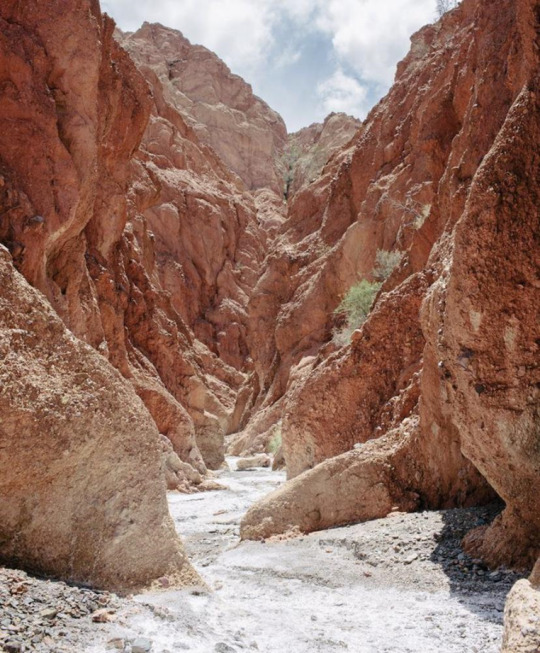
Le pays est un important producteur d'étain; en outre, il possède des réserves de zinc, d'antimoine, de tungstène, d'argent, de plomb et de cuivre, ainsi qu'une petite quantité d'or. Bien que l'étain domine la production de métal, la Bolivie est un fournisseur très précieux par rapport à l'Asie du Sud-Est et est donc particulièrement vulnérable à la demande mondiale d'étain. La société minière publique Comibol a annoncé de lourdes pertes et une baisse de la production dans les années 1980, lorsque les deux tiers des stocks mondiaux d'étain ont fermé leurs mines et licencié un grand nombre de travailleurs.
Le début du développement des ressources pétrolières de la Bolivie remonte à 1920, lorsque la Standard Oil Company du New Jersey a acquis une concession pour l'exploration et l'exploitation de la zone au pied des Andes dans le sud-est de la Bolivie. Un certain nombre de petits gisements de pétrole ont été découverts ici, mais cette société a été nationalisée en 1937 et YPFB (Yacimientos Petrolíferos Fiscales Bolivianos) a été créée sur sa base.
Au milieu des années 1950, les entreprises américaines ont repris le développement pétrolier en Bolivie et, en 1956, la Bolivian Petroleum Company, une division de la société américaine, a entamé une décennie de développement réussi du pétrole et du gaz naturel dans la région de Santa Cruz.
#voyage#lesvues#pays#apprendlemonde#temps#bonjourvoyage#repos#joie#plaisir#environnementinconnu#faitsintéressants#finaguide
0 notes
Text
Petrobras assina aditivo de compra de gás de estatal da Bolívia
A Petrobras informou que celebrou novo aditivo ao contrato de compra de gás natural com a Yacimientos Petrolíferos Fiscales Bolivianos (YPFB), estatal boliviana que atua na área de exploração, produção de venda de petróleo e derivados.
Segundo a companhia brasileira, o contrato foi assinado após o cumprimento de trâmites internos de governança. O aditivo altera o perfil de entregas do volume…

View On WordPress
0 notes
Text
A Petrobras informou que celebrou novo aditivo ao contrato de compra de gás natural com a Yacimientos Petrolíferos Fiscales Bolivianos (YPFB), estatal boliviana que atua na área de exploração, produção de venda de petróleo e derivados.
Segundo a companhia brasileira, o contrato foi assinado após o cumprimento de trâmites internos de governança. O aditivo altera o perfil de entregas do volume total de gás contratado pela Petrobras, em função da disponibilidade de gás para exportação pela YPFB.
Volume máximo
O contrato prevê a manutenção do volume máximo de 20 milhões de m³ por dia, com maior flexibilização dos compromissos firmes de entrega e recebimento de acordo com a sazonalidade e a disponibilidade da oferta.
Segundo a Petrobras informou na noite dessa sexta-feira (15), os termos garantem “o fornecimento em equilíbrio contratual para as empresas e a possibilidade de venda adicional de gás pela YPFB para outros importadores brasileiros. Além disso, [há] maior segurança e previsibilidade de suprimento de gás ao mercado atendido pela Petrobras”.
Com informações da Agência Brasil
0 notes
Text
Petrobras assina aditivo de compra de gás de estatal da Bolívia
A Petrobras informou que celebrou novo aditivo ao contrato de compra de gás natural com a Yacimientos Petrolíferos Fiscales Bolivianos (YPFB), estatal boliviana que atua na área de exploração, produção de venda de petróleo e derivados.
Segundo a companhia brasileira, o contrato foi assinado após o cumprimento de trâmites internos de governança. O aditivo altera o perfil de entregas do volume…
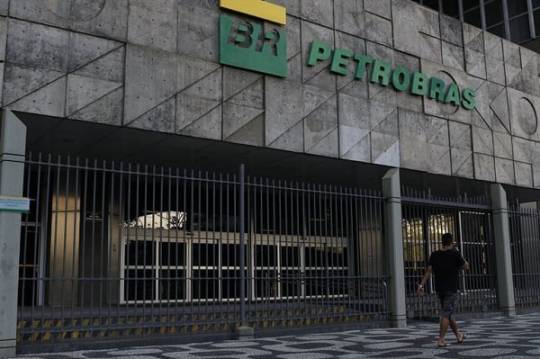
View On WordPress
0 notes
Text
Escasez de Gas en Santa Cruz tras la Fuga de un Gasoducto
Una fuga de gas provocada en los trabajos de excavación de un municipio de la zona de Santa Cruz obligó a Yacimientos Petrolíferos Fiscales Bolivianos (YPFB) a cerrar las válvulas del gasoducto y causó una escasez de este combustible en gran parte de la capital cruceña. Los pocos surtidores que cuentan con este combustible, registran largas colas de vehículos, lo que ha provocado molestia en los…

View On WordPress
0 notes
Text
Venda de gás ao Brasil rende US$ 384 milhões à estatal boliviana YPFB no 1° trimestre
A petroleira estatal da Bolívia Yacimientos Petrolíferos Fiscales Bolivianos (YPFB) faturou US$ 384 milhões pela venda de gás natural ao Brasil no primeiro trimestre deste ano, dos US$ 611 milhões vendidos no total, incluindo Argentina e o mercado interno. Os principais clientes da YPFB no Brasil são a Petrobras e a Companhia Matogrossense de Gás (MT Gás).
Segundo dados divulgados pela Petrobras,…
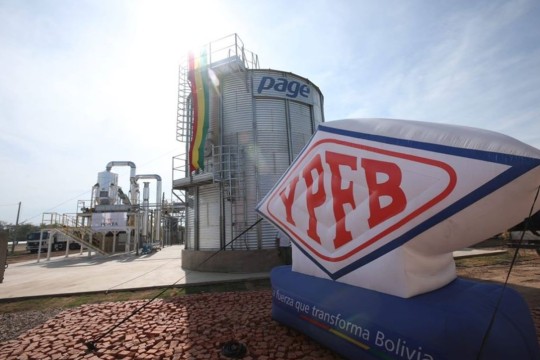
View On WordPress
0 notes
Text
Petroleira boliviana YPFB pretende alcançar 4,7 milhões de metros cúbicos em vendas de gasolina e óleo diesel em 2023
A petroleira boliviana Yacimientos Petrolíferos Fiscales Bolivianos (YPFB) anunciou recentemente o seu plano de metas para o ano de 2023. Ela pretende chegar à marca de 4,7 milhões de metros cúbicos em vendas de gasolina e óleo diesel até o fim do ano. Para isso, ela se aproveitará do crescimento dos setores produtivo e de serviços durante os próximos meses. Trata-se de uma empresa privada que, desde a sua criação em dezembro de 1936, se dedica à exploração, destilação e venda de petróleo e seus derivados.
Setores produtivo e de serviços serão os principais agentes no plano de vendas de 4,7 milhões de metros cúbicos de gasolina e óleo diesel da YPFB em 2023
A petroleira boliviana YPFB está com grandes projeções de crescimento no mercado de distribuição de combustíveis ao longo do ano de 2023. Apoiada no crescimento industrial, ela está visando alcançar a meta de vendas de 4,7 milhões de metros cúbicos de gasolina e óleo diesel no país.
Os números foram divulgados em comunicado pelo presidente da petroleira estatal, Armin Dorgathen Tapia, durante esta semana. Ele afirma que a empresa irá se apoiar nos setores da agricultura, indústria, comércio e transporte ao longo do ano, em razão do seu aquecimento, para chegar aos resultados de vendas de gasolina e óleo diesel.
“A Yacimientos assumiu as previsões correspondentes para garantir combustíveis para os setores produtivos e de serviços em nível nacional. As atividades econômicas terão volumes suficientes para realizar suas atividades com absoluta normalidade durante esta administração, com base no mandato que recebemos de nosso Presidente do Estado Plurinacional da Bolívia”, disse o presidente.
Dentre os 4,7 milhões de metros cúbicos de vendas que a petroleira deseja alcançar, 2,3 milhões de metros cúbicos serão de gasolina especial e um volume de mais de 2,4 milhões de metros cúbicos será de óleo diesel. As regiões de Santa Cruz, La Paz e Cochabamba serão as que mais consumirão os produtos ao longo do ano de 2023, como aponta as projeções da YPFB. Ela pretende impulsionar as vendas da gasolina e óleo diesel no país com os novos projetos de infraestrutura, indústria e serviços emergentes atualmente.
Petroleira alcançou número de vendas expressivo em 2022 e pretende impulsionar a comercialização em 2023
No ano de 2022, a YPFB alcançou a marca de vendas de 2.164.908 metros cúbicos de gasolina especial e 2.289.320 metros cúbicos de óleo diesel no país. Esses números foram bastante expressivos para a conjuntura socioeconômica ao longo do último ano, mas poderão ser fortemente expandidos nos próximos meses.
Mesmo com um aumento na venda de gasolina de 7,54% e de óleo diesel de 10,72% entre a gestão atual e passada, a petroleira estatal ainda busca tornar esses valores maiores com os novos projetos dos setores produtivo e de serviços no ano. Atualmente, o Plano de Contingência enfrentado pela YPFB possibilita garantir a logística do abastecimento normal de hidrocarbonetos líquidos no país.
“O governo nacional, por meio de seu braço operacional YPFB, preserva maior autonomia e reservas de combustível para casos de contingência, como a guerra que obrigou os países da região a aumentar o preço do combustível, devido ao aumento dos preços internacionais do petróleo”, afirmou Dorgathen Tapia.
Apesar dos cenários internacionais instáveis, como a guerra entre a Ucrânia e Rússia, esse ainda é o pilar de apoio da petroleira para a comercialização dos combustíveis em situações de crise. Dessa forma, ao longo de 2023, a petroleira YPFB pretende continuar se destacando nas vendas de gasolina e óleo diesel com o apoio estatal.
Portanto, podemos concluir que as metas da companhia para o ano de 2023 apontam para vendas de mais de 4,7 milhões de metros cúbicos de gasolina e óleo diesel. Além disso, a petroleira boliviana YPFB pretende aproveitar o aquecimento dos setores produtivo e de serviços para expandir número de venda no ano.
O post Petroleira boliviana YPFB pretende alcançar 4,7 milhões de metros cúbicos em vendas de gasolina e óleo diesel em 2023 apareceu primeiro em Petrosolgas.
0 notes
Text
Petrobras firma adenda a contrato para garantizar gas que recibe de Bolivia
Petrobras firma adenda a contrato para garantizar gas que recibe de Bolivia
La petrolera brasileña Petrobras anunció este viernes que firmó una adenda al contrato por el que le compra gas natural a Yacimientos Petrolíferos Fiscales Bolivianos (YPFB) para garantizar los volúmenes del combustible que recibe de Bolivia y darle más previsibilidad al acuerdo.
La firma de la adenda fue anunciada por la mayor empresa de Brasil en un comunicado enviado al mercado y luego de que…
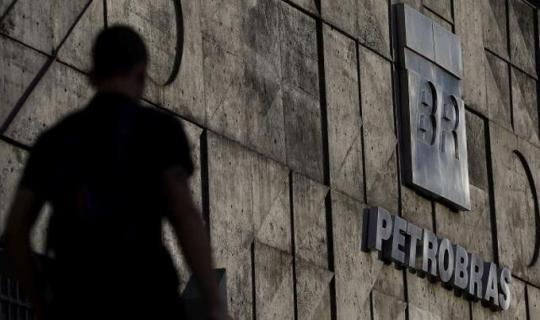
View On WordPress
0 notes
Photo
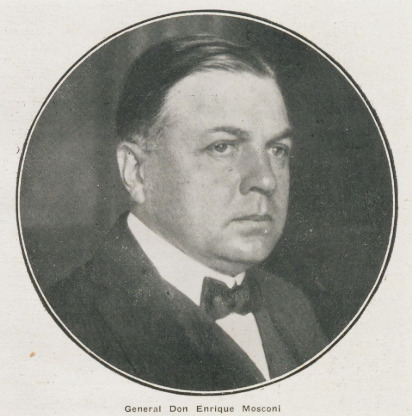
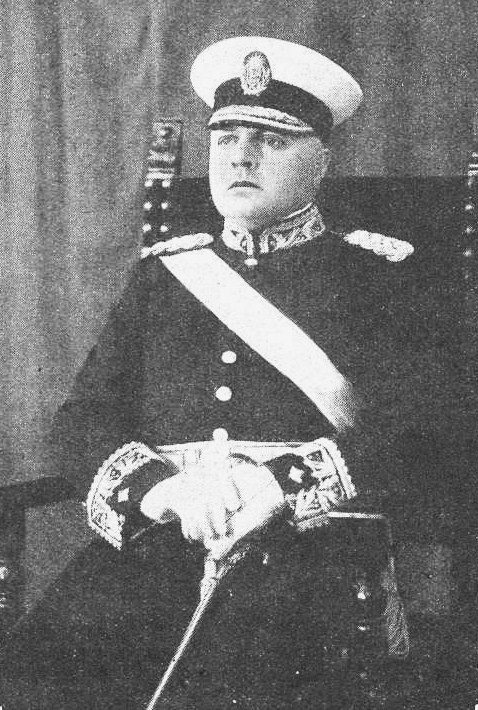
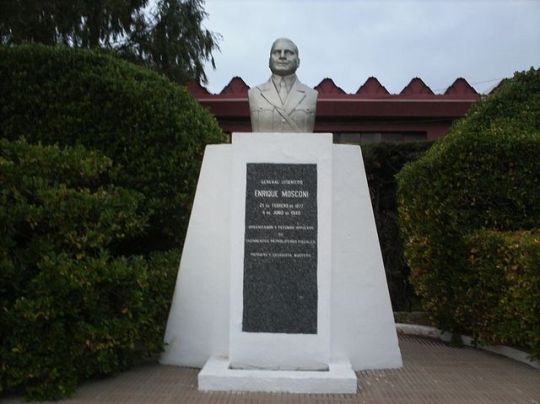
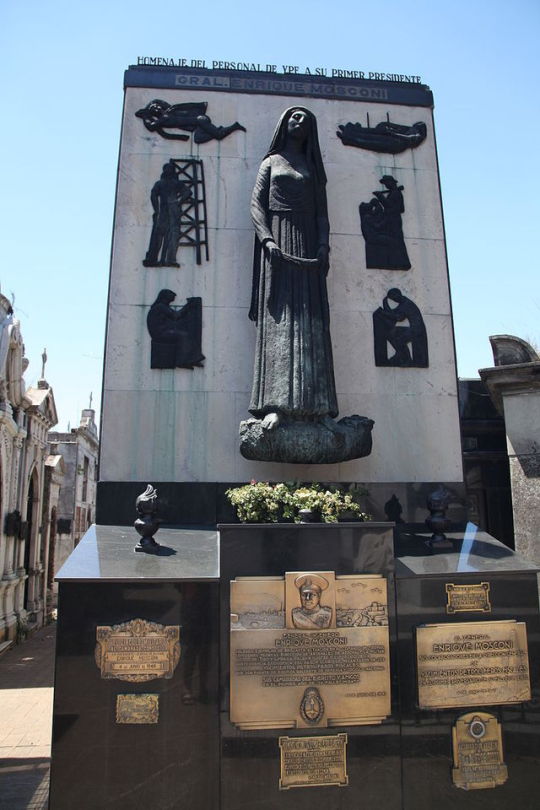
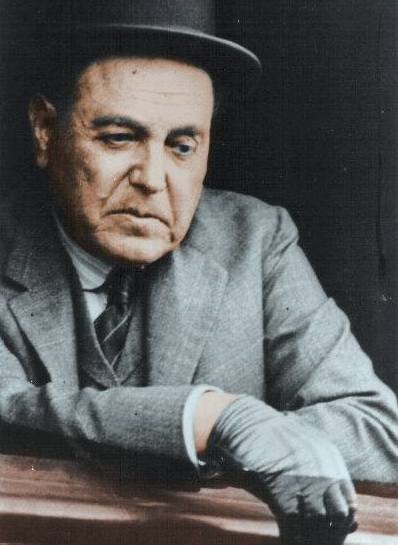
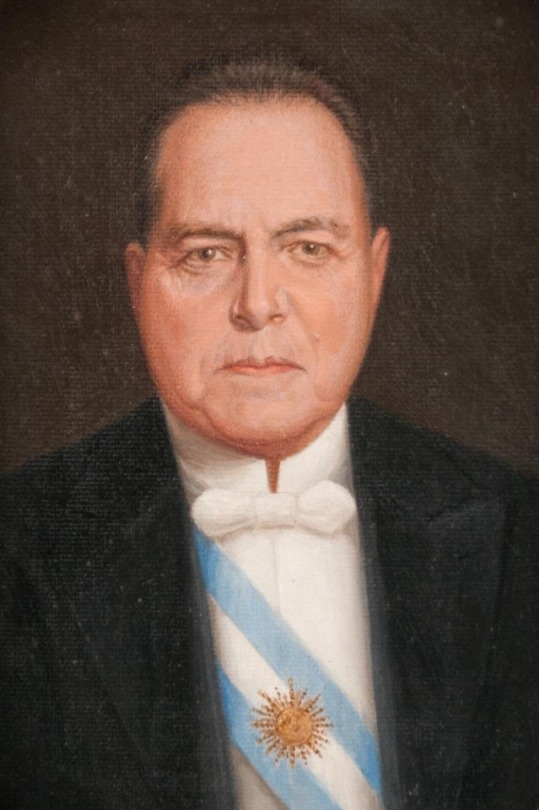

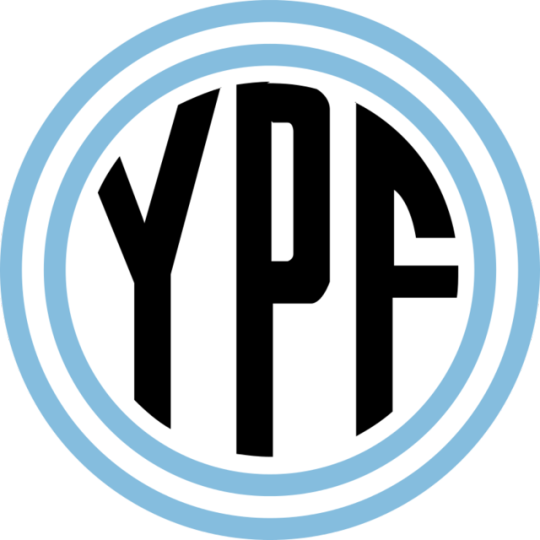
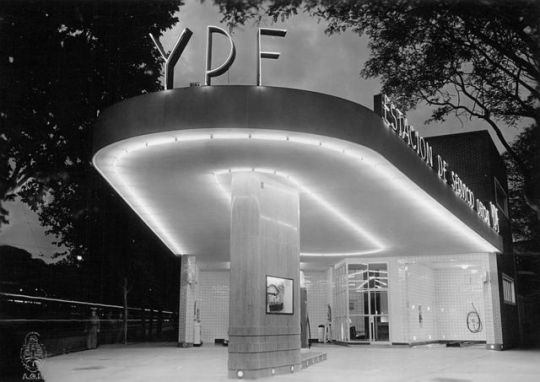
Enrique Carlos Alberto Mosconi (21 February 1877 – 4 June 1940) was an Argentine military engineer, who is best known as the pioneer and organizer of petroleum exploration and extraction in Argentina.[2]
Mosconi was born in Buenos Aires to Enrico Mosconi, an Italian engineer hired to build railroads, and María Juana Canavery, an Argentine of Irish descent. Enrico Mosconi founded the town of Villa Gobernador Gálvez on 26 February 1888. Enrico Mosconi wanted a medical doctor son; his mother wanted her son to follow the family military tradition of Ángel Canavery, his uncle, who had taken part in the Conquest of the Desert.
In 1903 he was transferred to the Engineering division of the Army as a military engineer, and in 1904 he received a prize for a construction project. Between 1906 and 1908 he was part of commission of Argentine graduate students sent to Europe (Italy, Belgiumand Germany) to study and acquire hydroelectric and gas power plants. He was assigned to the German Army engineering corps, and spent four years embedded in the 10th Battalion of Westphalia, while in postgraduate studies at the Artillery and Engineering Superior Technical School of Charlottenburg. In Germany he became acquainted with the ideas of Friedrich List (1789–1846), an economist whose industrialist ideas had great influence in Europe and the United States.
YPF was created by President Hipólito Yrigoyen and General Enrique Mosconi on 3 June 1922. It was the first entirely state-run oil company in the world, the second being the French Compagnie française des pétroles (CFP, French Company of Petroleum), created in 1924 by the conservative Prime Minister Raymond Poincaré.[8] YPF's creation was followed by the creation of ANCAP in Uruguay (1931), YPFB in Bolivia (1936), Pemex in Mexico (1938), ENAP in Chile (1950), and Petrobras in Brazil (1953). Mosconi served as YPF's first director.
Juan Hipólito del Sagrado Corazón de Jesús Yrigoyen (12 July 1852 – 3 July 1933) was a two-time President of Argentina who served his first term from 1916 to 1922 and his second term from 1928 to 1930.
His activism became the prime impetus behind the obtainment of universal suffrage in Argentina in 1912. Known as "the father of the poor," Yrigoyen presided over a rise in the standard of living of Argentina's working class together with the passage of a number of progressive social reforms, including improvements in factory conditions, regulation of working hours, compulsory pensions, and the introduction of a universally accessible public education system.
On 16 October 1922 Mosconi was appointed by the president Alvear as Director-General of the Fiscal Petroleum Reserves (Yacimientos Petrolíferos Fiscales, YPF), where he would stay for eight years, devoting large efforts to increase exploration and development of petroleum extraction. [6]
YPF received an initial grant of 8 million Argentine pesos by the national government, and from then on became self-sufficient, financing itself with the profits of extraction and, of course, without foreign investment or loans. In 1925 Mosconi considered the possibility of a state-private society, but in 1928 he turned back on his proposal and further stated:
"There is no other way but the monopoly of the State in a wholesale fashion, that is, in all activities of this industry: production, elaboration, transport and trade... Without an oil monopoly it is difficult... it is impossible for a State company to defeat private capital organizations."
He also remarked that, in order to defend Argentine fiscal oil reserves from the foreign companies, there was the need of "a magnificent insensitivity to all demands on the part of private interests, either in accord or not with the collective interests, but even more, what is needed is a political power capable of containing all opposing forces". Some of the nationalistic policies of Venezuelan President Hugo Chávez have been marked as a continuation of this doctrine.
The first YPF oil refinery was inaugurated in December 1925 in La Plata, and was at the time the tenth largest in the world.[11] According to Mosconi, this spawned the beginning of "the mobilization of all sort of resistance and obstacles" from the oil trusts, in particular from Standard Oil, which was one of the most influential foreign companies in Argentina, with a presence in Comodoro Rivadavia, Jujuy, and Salta.[11]
He created in 1927 the Alianza Continental (Continental Alliance) advocating economical independence for Latin American states, an association gathering mainly students and intellectuals, and focusing in particular on oil policies. Between 1927 and 1928 Mosconi toured Latin America telling and teaching the authorities about the Argentine experience with regards to fossil fuels, campaigning for an integration of efforts in the matter of petroleum as a resource. Mosconi was the major proponent of a national policy that put natural resources at the service of economic, industrial and social development of the nation. He defended nationalization of these resources, an absolute fiscal monopoly on surveyance and exploitation, the need for Latin American countries to agree on common actions in this matter, and the passing of resource-related legislation that was advantageous to the interests of the national states. During this trip, Mosconi met with Lázaro Cárdenas, who would nationalize oil in Mexico ten years later, and General Elías Plutarco.[7] The influence of these doctrines reached Mexico, Brazil, Uruguay, Bolivia and Colombia.
Mosconi managed YPF efficiently and, while establishing a soon-to-be major oil company, starts fighting the political pressure of two giants of hydrocarbon exploitation: the British-Dutch Royal Dutch, and John D. Rockefellers' Standard Oil.
The Chamber of Deputies approved a law on 28 September 1928, establishing a state monopoly on oil.[12] The monopoly, however, was not absolute, being limited to oil exploration, exploitation and transport, but excluding selling and imports.[12] Private firms opposed themselves to the law project, refusing to pay a 10% royalty.[13] The bill was supported by President Marcelo Torcuato de Alvear but was ultimately blocked by the conservatives in the Senate.
Oil nationalization became an important theme of Yrigoyen's electoral campaign of 1928, although the Yrigoyenistas focused their criticism on Standard Oil of New Jersey, abstaining themselves from attacking British Empire interests, to which Argentina's economy was closely linked (in particular Royal Dutch Shell).[13]
Following Yrigoyen's victory in the 1928 elections, YPF, still directed by Enrique Mosconi, reduced oil prices in May 1929, leading to the cheapest petroleum in the world[13] and to an important increase in YPF's sales compared to its rival private companies, forcing them to also lower their prices.[13] Mosconi also reduced the price of kerosene and agrochemicals to contribute to the development of the interior regions of Argentina.[13] YPF produced 5.5 million barrels by 1929, and though its share of domestic output had declined to 58% (from 77% in 1923) amid a sharp rise of Esso and Royal Dutch Shell production in Chubut, the firm now covered a third of the nation's oil market. A partnership with distributor Auger & Co. signed in 1925 resulted in a network of over 700 filling stations selling 178 million liters (47 million gallons) by 1930 – an 18% market share. Company revenues in 1930 reached US$25 million.[9]
The Petroleum Institute (Instituto del Petróleo) was created on 30 December 1929, and directed by Ricardo Rojas, the rector of the University of Buenos Aires. Foreseeing conflicts with US private companies, Mosconi proposed an agreement with the Soviet state company Amtorg, which was to allow Argentina to import 250,000 tons of petroleum each year, paid by trade with leather, wool, tannin and mutton.[14] The agreement was to be made official in September 1930, along with the complete nationalization of oil resources;[14] but on 6 September 1930, Yrigoyen was deposed by a military coup headed by General José Félix Uriburu, and the project was withdrawn.
This was the first military coup since the adoption of the Argentine constitution. After the coup d'état Enrique Pérez Colman, Minister of Finance in the Yrigoyen cabinet; General Moscini, former Director of oil fields; General Baldrich and a number of Yrigoyenist deputies were under arrest by the provisional government of General Uriburu.
The new government of Uriburu adopted the most severe measures to prevent reprisals and counter-revolutionary tactics by friends of the ousted administration of ex–President Yrigoyen. The aforementioned Yrigoyenist personalities were later released. [6]
In 1929 Mosconi received Edmundo Castillo, Uruguay's Minister of Industry, and counseled him about the establishment of a national refinery and a state corporation to sell its products. This led to the creation of ANCAP (Administración Nacional de Combustibles, Alcohol y Portland), the state energy corporation created by the Uruguayan government in 1931.
In 1936, after the Chaco War, the state of Bolivia created Yacimientos Petrolíferos Fiscales Bolivianos (YPFB) after the model of the Argentine company, and soon afterward it dictated the expropriation of the Bolivian Standard Oil Company.
In 1938 the same ideas led to the Conselho Nacional do Petróleo (CNP). That year Mosconi was awarded a medal by the Academy of Science and Art of Rio de Janeiro, in recognition for his work.
The coup was lobbied for chiefly by Standard Oil, whose interests in Salta Province and neighboring Bolivia conflicted with those of YPF.[5]The subsequent Concordance regime supported YPF, however, and its role as the nation's leading oil distillates retailer was bolstered by a 1936 agreement with the Automóvil Club Argentino (ACA) to supply a chain of ACA service stations. Oil production by YPF continued to grow, and soon eclipsed private production: from just over 5 million barrels (37% of the total) in 1934, production grew to 15 million in 1945 (67%).[9] The development of the nation's sizable natural gas resources also originated largely from YPF. Drawing from an initiative by YPF director Julio Canessa, President Juan Perón ordered that the gas flared off in YPF oil extraction should instead be captured, and sold by a state company, thus establishing the sister firm Gas del Estado ("State Gas") in 1946. The nation's first gas compressor and what at the time was the world's longest gas pipeline were completed by 1949, leading to a fifty-fold increase in natural gas production.[15] Oil production at YPF surpassed 25 million barrels (84% of the nation's total) by 1955.[9]
This gain was partly offset by a 40% drop in private-sector output, however, such that overall oil production rose by only one-third during the Peronist decade while annual consumption nearly doubled to 70 million barrels. The nation's oil supply thus shifted from 60% domestic in 1945, to 60% imported by 1954. Oil imports by 1955 rose to US$300 million, or over one fourth of total merchandise imports.[16] Perón had made economic nationalism a policy centerpiece. YPF was granted an exemption from steep oil import tariffs levied on private firms, and Article 40 of the Constitution of 1949 stipulated the nationalization of all energy and mineral resources. The deteriorating oil deficit led Perón to court foreign investment in the sector as early as 1947, however, when an oil drilling contract was signed by YPF with U.S. firm Drilexco.[17] Total exploration doubled, and significant reserves in Salta Province were developed.[18] A more controversial joint venture with Standard Oil of California was signed in 1955 for the eventual production of up to 56 million barrels a year.[17] These initiatives were opposed by much of the Army, the opposition UCR, and among others Perón's point man on national oil policy, YPF head Julio Canessa, who was dismissed. The venture ended following Perón's overthrow in September.[19]
YPF was privatized in 1993 and bought by the Spanish firm Repsol S.A. in 1999; the resulting merger produced 'Repsol YPF'. The renationalization of 51% of the firm was initiated in 2012 by President Cristina Fernández de Kirchner.[6] The government of Argentina eventually agreed to pay $5 billion compensation to Repsol.[7]
@artist-tyrant
#Latin America#Argentina#History of Argentina#Economic Nationalism#National Economics#Oil Industry#petroleum#Petroleum Industry#State-owned enterprises#State-Run Enterprise#Corporatism#Enrique Mosconi#President of Argentina#Hipólito Yrigoyen#YPF#Yacimientos Petrolíferos Fiscales#Argentinian Oil Industry#Latin American Nationalism#Juan Peron#Peronism#Third Positionism
2 notes
·
View notes
Text
YPFB aumenta capacidad de despacho de cisternas en Terminal Arica
Yacimientos Petrolíferos Fiscales Bolivianos (YPFB) ha incrementado la capacidad de despacho de cisternas en la Terminal Arica, en Chile, para garantizar el abastecimiento de combustibles en Bolivia. Según el presidente de YPFB, Armin Dorgathen, se pueden transportar hasta 3.6 millones de litros diarios para cumplir con los requerimientos de hidrocarburos líquidos y lograr una mayor agilidad en…

View On WordPress
#Abastecimiento#Ahorro#Bolivia#cisternas#combustibles.#crudo#demanda#Diésel#Gasolina#Importación#mercado#oferta#Terminal Arica#YPFB
0 notes
Text
Petrobras-Bolivia YPFB reach handshake deal on gas exports
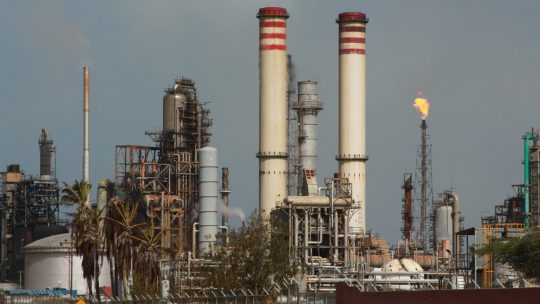
Bolivian state-owned oil and gas company Yacimientos Petrolíferos Fiscales Bolivianos (YPFB) has reached an agreement with Brazilian firm Petrobras that will allow both sides to renegotiate contract terms and resume regular exports of Bolivian gas to Brazil.
Since May, YPFB has reduced its daily gas payloads to Brazil by 30 percent, demanding higher payments.
Now, after drawn-out negotiations, Petrobras agreed not just to drop threats of sanctions against the Bolivian company, but also to pay more for the previously agreed volume of 20 million cubic meters of gas per day.
Continue reading.
#brazil#brazilian politics#politics#bolivia#bolivian politics#economy#petrobras#oil industry#foreign policy#international politics#mod nise da silveira#image description in alt
0 notes
Text
Les réserves minérales de la Bolivie sont les ressources les plus précieuses
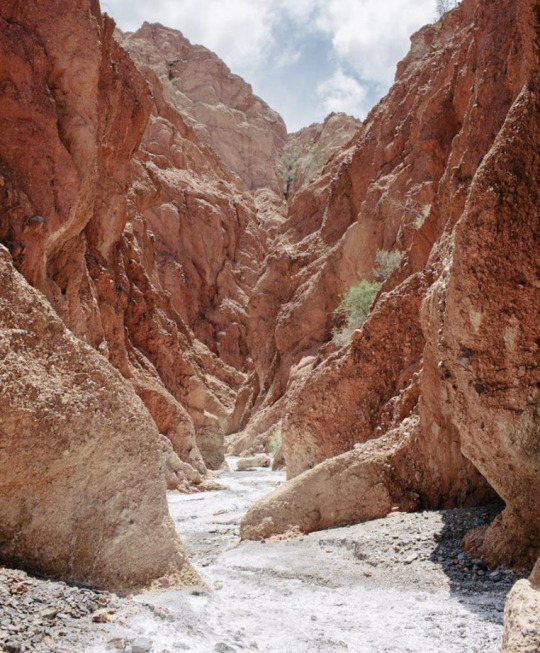
Le pays est un important producteur d'étain; en outre, il possède des réserves de zinc, d'antimoine, de tungstène, d'argent, de plomb et de cuivre, ainsi qu'une petite quantité d'or. Bien que l'étain domine la production de métal, la Bolivie est un fournisseur très précieux par rapport à l'Asie du Sud-Est et est donc particulièrement vulnérable à la demande mondiale d'étain. La société minière publique Comibol a annoncé de lourdes pertes et une baisse de la production dans les années 1980, lorsque les deux tiers des stocks mondiaux d'étain ont fermé leurs mines et licencié un grand nombre de travailleurs.
Le début du développement des ressources pétrolières de la Bolivie remonte à 1920, lorsque la Standard Oil Company du New Jersey a acquis une concession pour l'exploration et l'exploitation de la zone au pied des Andes dans le sud-est de la Bolivie. Un certain nombre de petits gisements de pétrole ont été découverts ici, mais cette société a été nationalisée en 1937 et YPFB (Yacimientos Petrolíferos Fiscales Bolivianos) a été créée sur sa base.
Au milieu des années 1950, les entreprises américaines ont repris le développement pétrolier en Bolivie et, en 1956, la Bolivian Petroleum Company, une division de la société américaine, a entamé une décennie de développement réussi du pétrole et du gaz naturel dans la région de Santa Cruz.
#voyage#lesvues#pays#apprendlemonde#temps#bonjourvoyage#repos#joie#plaisir#environnementinconnu#faitsintéressants#finaguide
0 notes
Text
La agrupación política CREEMOS solicita conforma la comisión mixta para investigar denuncias de corrupción en YPFB
La agrupación política CREEMOS solicita conforma la comisión mixta para investigar denuncias de corrupción en YPFB
La bancada de Creemos presentó este jueves una solicitud formal al vicepresidente y presidente de la Asamblea Legislativa, David Choquehuanca, pidiendo la conformación de una comisión especial mixta para investigar presuntos hechos de corrupción en Yacimientos Petrolíferos Fiscales Bolivianos (YPFB).
“Solicitamos de forma urgente se conforme una comisión especial mixta de investigación de los…

View On WordPress
0 notes
Text
Shell Bolivia exige a YPFB pago de casi 30 millones de dólares
Cristina Núñez, representante legal de Shell Bolivia Corporation (SBC), hizo llegar una carta dirigida a Armin Dorgathen, presidente de Yacimientos Petrolíferos Fiscales Bolivianos (YPFB), para exigir el pago de $us 29,5 millones (por costos recuperables y utilidades), más un interés de casi medio millón, correspondientes al periodo enero- julio del presente año. En la misiva, se hace notar que…

View On WordPress
0 notes